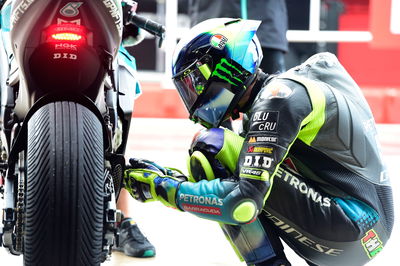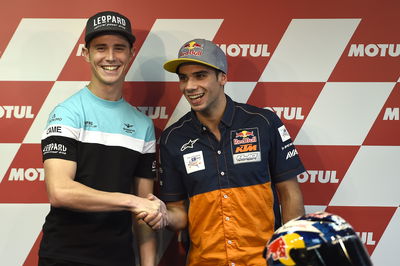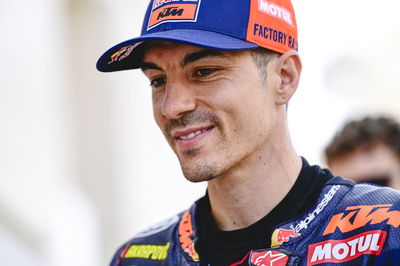Valentino Rossi: M1 took 'big step down' after standard ECU

Fabio Quartararo's MotoGP title victory is also Yamaha's first under the single electronic rules, introduced back in 2016.
Although MotoGP also switched from Bridgestone to Michelin tyres that season, Valentino Rossi backs the idea that the M1 was hit especially hard by the standard ECU.
While the 'unified' Magneti Marelli system contains identical hardware and software functions, factories input their own calibration data - many thousands of numbers that decide 'if this happens, do that' - to maximise the performance of each bike.
Yamaha finished one-two in the final 2015 season of open electronics courtesy of Jorge Lorenzo and Rossi. But the factory then suffered its longest (five season) title drought since Rossi arrived, in 2004, leading up to Quartararo's triumph.
"Our bike was fantastic as long as we had the Yamaha electronics," Rossi said.
The Italian, currently spending his final MotoGP season at the satellite Petronas team, explained that Yamaha suffered by not joining main rivals Ducati and Honda in head-hunting Magneti Marelli staff from the start.
Instead, the factory relied on its own electronic engineers to understand how to maximise performance from the new system.
"The M1 is a very Japanese project. All the engineers are from Japan. For me, we always have a lot of problems to use the [standard] Magneti-Marelli at the maximum. The bike made a big step down when we changed this," Rossi said.
Although late to the party, Yamaha has taken steps to address the electronics situation and is now fighting for the Triple Crown of riders', constructors' and teams' titles for the first time since 2015.
Nonetheless, Rossi feels the M1's continued weakness on a drying track, exposed as recently as Misano last weekend, is a legacy of the 'in-house only' attitude taken in 2016.
"All the other manufacturers had a different approach, more like in Formula 1. They opened up and took a lot of Italian [Magneti Marelli] engineers from Italy," Rossi said.
"But in the end, at Yamaha, the people are more or less the same. From this point of view, it’s difficult to manage. Especially when we are in these mixed [dry/wet] conditions, we lose a lot from this point of view. "












